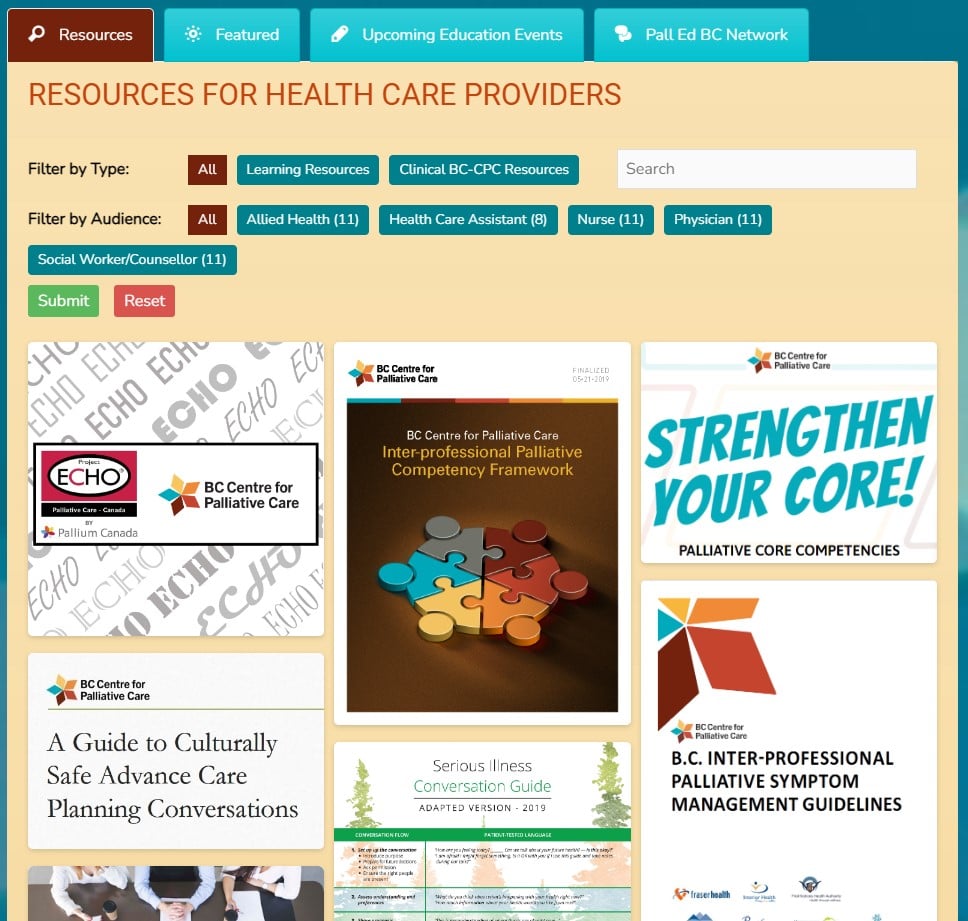New network, new look, new approach
When it comes to resources for health care providers, the BCCPC team has taken a bold, fresh approach to gathering information and to sharing it with our stakeholders. The approach has two exciting developments: a new look and functionality to our resources web page and the launch of the new Pall Ed BC Network.
On the web page, we’ve added search capabilities and the option to filter by audience group and type of resources. We’ve also added a “featured” tab, so you can keep up with new additions and developments.
Just launched! New Pall Ed BC Network for palliative care educators
 Building on consultation with professionals on the palliative care front lines, we are pleased to announce a brand-new initiative: the Pall Ed BC Network. The network is a new collaborative space aimed at enhancing palliative education around BC to ultimately improve patient and population-level care.
Building on consultation with professionals on the palliative care front lines, we are pleased to announce a brand-new initiative: the Pall Ed BC Network. The network is a new collaborative space aimed at enhancing palliative education around BC to ultimately improve patient and population-level care.
“Our goal is to help by reducing duplication and making it easy for those involved with palliative education to work together.”
To access the Pall Ed BC Network, you will be asked to complete a registration form. The information will help our team to understand who is using the network, and how to create and curate content that will be most useful to you.
Connecting to the network will allow members to provide input to current provincial initiatives in BC, seek and provide feedback on other members’ projects, collaborate to decrease duplication, and support mutual goals across organizations receive Pall Ed information.
“I know from experience how stretched palliative care resources are,” says Della Roberts, BCCPC Special Projects Manager and former Palliative Care CNS with Island Health. “Our goal is to help by reducing duplication and making it easy for those involved with palliative education to work together.”
The network is intended for palliative care educators, clinicians with an educational role, faculty members of academic institutions, researchers, direct care providers supporting people with serious illness, health care students, and members of community organizations or private practice who provide education for health care providers on palliative care/approach.
“Beyond formal palliative care providers, we are looking to build membership from care settings not traditionally recognized as ‘palliative’ such as acute medicine and long-term care, but who work with patients diagnosed with serious illness. By including those involved with education in these settings, we can continue to foster the spread of a palliative approach to care,” explains Della Roberts.
To register for the Pall Ed BC Network, click here. (Or go to our Resources for Health Care Providers page and click on the “Featured” tab.)

